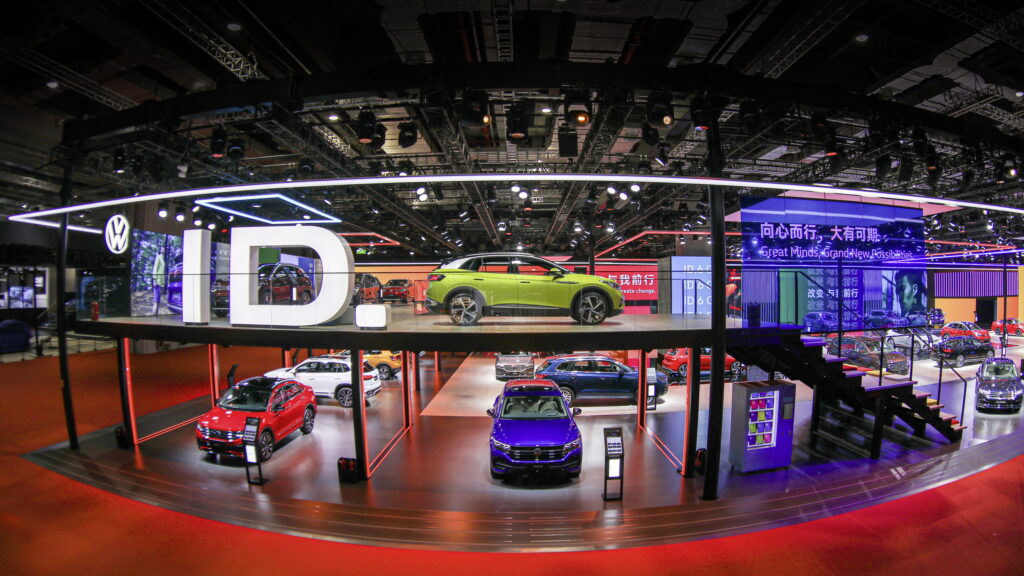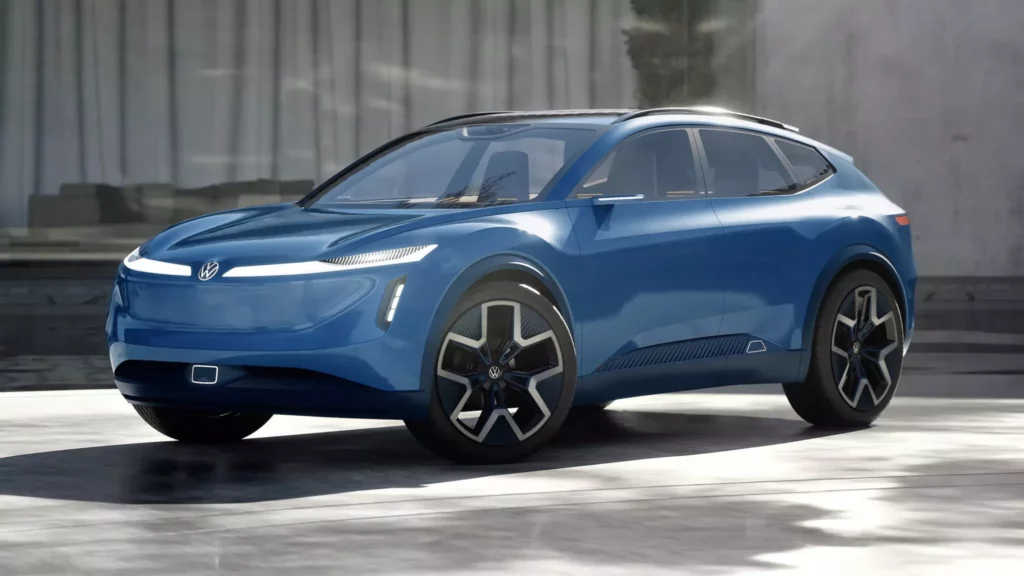- Volkswagen and China’s SAIC have signed a deal extending their partnership to 2040.
- The pair announced their recommitment to the joint venture 40 years after teaming up.
- SAIC Volkswagen plans to introduce 18 EVs and PHEVs to the Chinese market by 2030.
These days almost every major automaker has a tie-up with a partner firm in China, but it was Volkswagen that blazed the trail, joining forces with domestic company SAIC four decades ago. And this week, on the 40th anniversary of that original deal, the pair have signed up to extend their joint venture to 2040.
Controversial Xinjiang Plant Sale
At the same time, VW announced the sale of its Urumqi car plant in Xinjiang province, a region that has been under intense scrutiny due to alleged human rights violations. Owned by the VW-SAIC joint venture, the duo finally agreed to sell their controversial Xinjiang plant to Shanghai Motor Vehicle Inspection Certification (SMVIC), Reuters says.
The manufacturing plant gained notoriety because the region has been the location of human rights abuses of the Uyghur people, a predominantly Muslim ethnic group in Xinjiang, though VW’s own audit claimed to have found no evidence of forced labor at the plant. It’s worth noting that the factory, which opened in 2013, has lost its relevance in recent years, now employing just 200 people for final checks and deliveries. Once capable of producing 50,000 cars annually, it hasn’t turned out a single vehicle since 2019.
Extended Agreement and Future Plans
The current agreement between VW and SAIC doesn’t expire until 2030,but the automakers opted to extend it now due to the “multi-year planning cycles of new products,” and boy do they have a ton of those new products in the pipes.
Related: VW Goes All-In On China With ID.UX Sub-Brand And 30 New Cars By 2030
SAIC Volkswagen is on target to introduce 18 new models, 15 of them specifically for the Chinese market. Six of the 18 are EVs, with two of those due to arrive in 2026 using the newly locally developed “Compact Main Platform” (CMP) and zonal electric architecture.

Chinese customers have switched on to EVs at a much faster rate than their counterparts in Europe and North America, but that doesn’t mean SAIC Volkswagen is going to ignore combustion tech. Arriving in 2026, the same year as the two EVs, are three plug-in hybrid models and two range-extender EVs.
“China is a driver of innovation for autonomous driving and electric mobility,” said Ralf Brandstätter, VW’s top man in the country. “With the new agreement, we are intensifying our integration into the Chinese ecosystem and consistently leveraging local innovation strength. This also creates a strategic competitive advantage for the Volkswagen Group worldwide.”
Sales Struggles in China
VW, like many western Automakers, has been struggling recently with falling sales in China. Having previously lapped up offerings from brands like VW, Porsche, BMW and Mercedes, Chinese buyers are increasingly choosing cars from rapidly improving domestic brands selling cars at prices European companies struggle to match. Before the pandemic German brands accounted for 25 percent of cars sold in China, but now they make up only 15 percent, Bloomberg reported last month.





